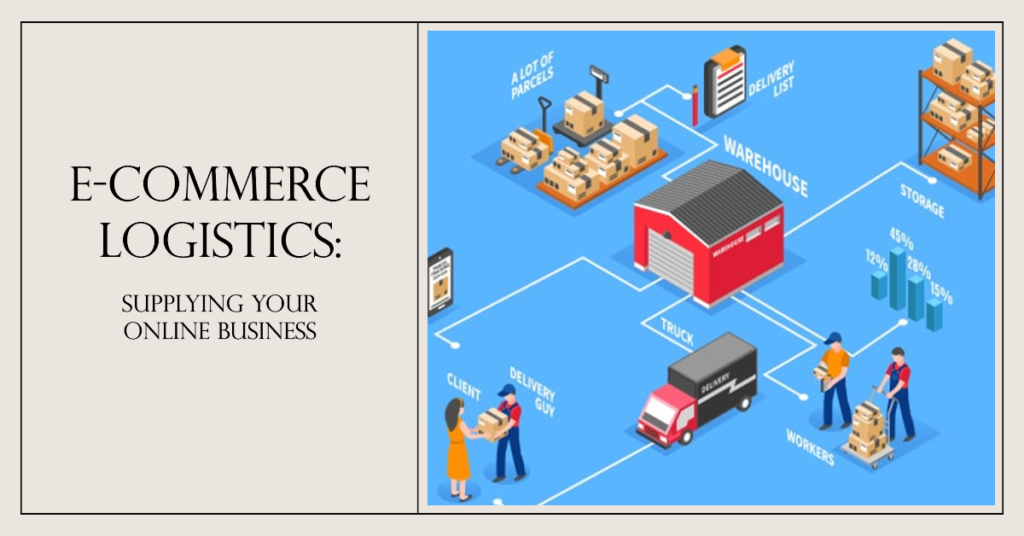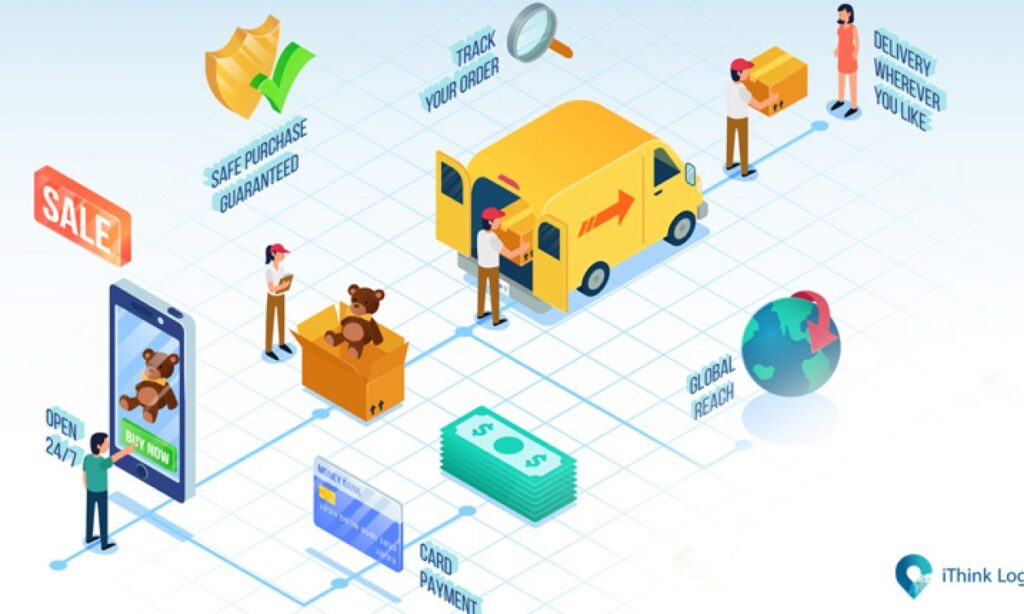In the ever-changing world of modern commerce, e-commerce has become a powerful force, completely changing how we purchase and sell items. With the global expansion of this online marketplace, any online firm now relies on e-commerce logistics for success. Meeting the demands of today’s sophisticated consumers heavily relies on logistics, which manages everything from order processing to inventory management and quick delivery.
So, this article delves into the complexities of e-commerce logistics, highlighting the various elements that contribute to the expansion. Also, the longevity of online businesses in the constantly evolving landscape of digital trade.
What is E-Commerce Logistics?
E-commerce logistics encompasses the administration and synchronization of several tasks involved in completing online orders. Also, it involves order processing, warehousing, packing, shipping, and inventory management.
E-commerce logistics ensures that companies deliver goods quickly and effectively. So, streamlining the supply chain to satisfy consumers in the online market.
Having a well-thought-out logistics process is not just desirable; e-commerce firms view quick and effective logistics as a competitive advantage.
Some even assert that their company’s operations face significant risks if their logistics procedure fails to satisfy clients.
The Components Of An E-commerce Logistics
Suppliers
Manufacturers or suppliers are the businesses that make the goods and deliver them to fulfillment centers. Additionally, if the brand uses drop shipping, the supplier ships the item straight to the buyer. If not, the company places a bulk order, keeps it in a warehouse, and ships it out to clients when orders come in.
Fulfillment centers
Warehouses known as eCommerce fulfillment centers store merchandise in prime locations, often near to the final customer. The fulfillment center packs and ships every item as soon as a customer places an order.
The fulfillment center can be owned, leased by eCommerce companies, or managed by a third-party logistics provider. Moreover, eCommerce companies can use a warehouse management system to track inventory and avoid unnecessary stock in the warehouse or fulfillment center.
Distribution centers
Big online merchants offer their goods for direct-to-consumer (DTC) and business-to-business (B2B) orders in several locations across the United States or the globe.
Splitting inventory enables an eCommerce company to ship DTC orders more quickly than if they kept all of their merchandise in one place. Which could result in longer delivery times and higher shipping costs.
Because B2B e-commerce transactions require different fulfillment procedures than DTC
orders, eCommerce enterprises may decide to use a separate facility for these types of orders. Furthermore, the variations include the kinds of customers and final delivery locations. Also the necessities for e-commerce warehousing and packing.
Facilities For Sorting
These are the facilities where products are sorted for large-scale eCommerce businesses that transport large amounts of merchandise.
Transporters
The businesses that deliver the goods to their destination are known as shipping carriers. Additionally, these are UPS, FedEx, DHL, and USPS in the US. So, they pick up the shipment from the warehouse or fulfillment center and deliver it to the customer via vehicle or airplane. Also, a brand may employ its private couriers in specific circumstances to expedite delivery.
Conclusion: E-Commerce Logistics
In conclusion, the world of E-commerce logistics is a dynamic and essential component of modern online businesses. As the E-commerce sector continues to thrive and evolve, the significance of efficient logistics cannot be overstated.
From streamlining order processing to optimizing inventory management and ensuring swift delivery, logistics remains integral to meeting the expectations of today’s digital consumers. By understanding and harnessing the power of E-commerce logistics, businesses can not only stay competitive but also thrive in the fast-paced world of online trade.
Overall, with the e-commerce market, it can be said that embracing innovation and strategic logistics solutions will be key to navigating the ever-changing landscape of E-commerce and securing success in the digital marketplace.










[…] experiences, optimize operations, and enhance security. By embracing these technologies, e-commerce platforms can stay ahead of the competition and meet the ever-changing demands of today’s […]